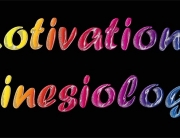If we are not moving, we are deceased. Every action involves movement – breathing, digestion, learning, playing, etc. Tight muscles & restricted movement have an impact on our body/mind co-ordination. Imagine every muscle in our body sending messages via the Central Nervous System to the brain, telling us the exact state of each muscle. The brain integrates & uses this information to carry out our every action. Our brain is constantly making compensations to keep us functioning. Muscular tension in the body creates stressors that can throw this whole system out of balance.
Tai chi, yoga, feldenkrais & Alexander techniques etc. are dedicated to improving mobility & flexibility. Frank Mahoney, in his own work Hyperton-x, discusses how muscles over-resistant to stretch create imbalances in body/mind co-ordination. Frank established a correlation between the level of athletic & mental performance, hemispheric brain & energy systems integration & the over-resistant state of muscles. In many cases one specific muscle could throw the whole body/mind integration system out of balance.
Increasing flexibility will improve movement of the spine, pelvis & cranium (skull) while enhancing the flow of cerebral spinal fluid (CSF) which moves up & down the spine between the occiput (back of the skull) & the sacrum. The sacrum acts as a pump. If there is tension or resistance in the sacrum, spine & occiput from improper muscle tension, CSF flow is impaired.
Flexibility improves sporting & academic skills, general health & longevity. It improves the flow of CSF, aiding the elimination of toxins from the CNS & hormone, nutrient & neurotransmitter transportation. The endocrine system can also be affected. As Frank Mahoney puts it, “this game can be played with dominoes”.
The flexibility procedures in Level One give access to any muscles that are affecting integration. The sixteen muscles covered in our Level 4 workshop will enhance the stretching techniques.






Leave A Comment
You must be logged in to post a comment.